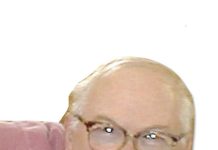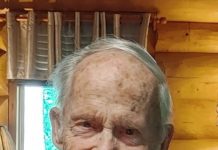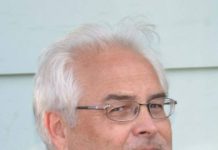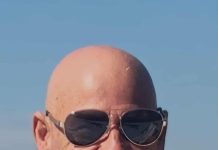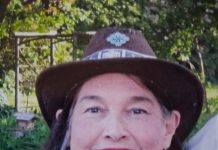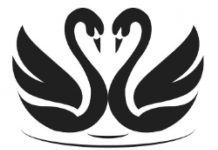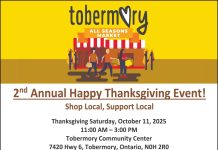Submitted by Dana Holmes,
Vice-Commodore, Tobermory Yacht Club
Higher winds, increasingly severe storms and ice storms, torrential downpours and greater amounts of snow, all often resulting in power outages, are indicators that something is different.
On August 14th, internationally recognized scientist on climate and environmental change, Dr. Francine McCarthy, will be speaking at the Parks Canada Visitor Centre at 7:00 pm. In addition to being a guest speaker at conferences around the world, Dr McCarthy has delivered a TED talk and been to the Vatican to speak to the Pontifical Academy of Science about the Anthropocene.
The Anthropocene is defined as the period “during which human activity has been the dominant influence on our planet”. Dr. McCarthy led the Canadian team of about 75 scientists who proposed tiny Crawford Lake, near Milton, as the site that best showed the global marks of human activity on the planet. Ultimately, annually layered sediment from Crawford Lake was chosen to be the “golden spike” candidate, winning out over eleven other sites from around the world, after an intensive four-year search.
Dr. McCarthy’s talk will address how we know how humans have impacted the Great Lakes Region since the end of the Ice Age, and most particularly since the mid-20th century, when geologists have determined the planetary system experienced a marked shift. What does this impact look like for residents and visitors today and what future climate and environmental changes might we expect? She will also look at what can be done to mitigate the impact and how to adapt to life in an Anthropocene world.
All are welcome to attend this free lecture, to learn more about one of the ten top issues of concern to Canadians today. Doors open at 6:30 pm. Seating is on a first come, first serve basis.
Donations to the McCarthy Fund for Crawford Lake, ON (supporting education and engagement initiatives that contribute to the protection of Crawford Lake) are welcome at the door.
This talk is proudly presented by the Tobermory Yacht Club and the Sources of Knowledge.


